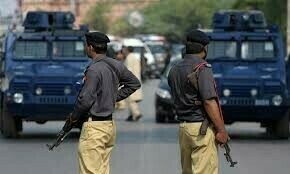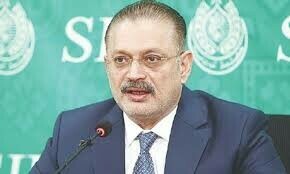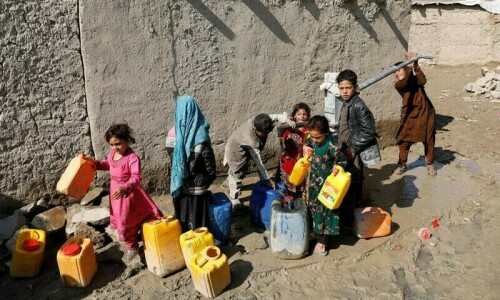KARACHI: While accusing the government of ‘deceit’ in negotiations over the autonomous structure of universities, an issue persisting since 2013, the leadership of university teachers once again opted for talks and announced on Monday at a press conference that their delegation would meet the chief minister on Tuesday which, they said, would be observed as a ‘black day’ at all public sector universities in protest.
Organised by the Federation of All Pakistan Universities Academic Staff Association’s (Fapuasa) Sindh chapter at Karachi University’s Staff Club, the presser followed a meeting of teachers’ representatives at the NED University earlier in the day.
It aimed at highlighting teachers’ concern over the recently passed Sindh Universities and Institutes Laws (Amendment) Bill, 2018 — through which acts of 24 universities have been amended.
The bill, yet to be approved by the governor in his capacity as chancellor, not only shifts his powers to the chief minister and leaves him with a ceremonial role, it also takes away institutional powers and nullifies the independent role of university syndicate and academic council.
To observe ‘black day’ today
“The government hasn’t held up their end of the bargain. The chief minister had assured us that university autonomy would be restored and that the draft of the bill would be shared with teachers’ representatives. But that was never done,” president of Fapuasa-Sindh Dr Naimatullah Leghari said.
He criticised the government decision of taking over the admission policy and said that nowhere in the country or any part of the world such policies were taken care of by the government but rather were formulated by the university’s academic council.
“It’s our unanimous stance that academic councils of respective universities should be given back their powers to make admission policies,” he said.
“Besides, the overwhelming presence of bureaucracy on university statuary bodies is highly objectionable and the association demands that teachers’ numerical strength on these bodies be restored.”
He also shared teachers’ concern over a clause in the law according to which a non- professor and ‘good administrator’ could be appointed a vice chancellor.
“This clause is against the basic structure and needs of a university. A vice chancellor as head of a university chairs all meetings, including those related to advance research. Hence, we believe and demand that the person given this post should be one eligible for professorship,” he said, adding that similar criteria was needed for a pro-vice chancellor, who should be made on vice chancellor’s recommendation.
Teachers’ representatives also rejected the inclusion of government officials on the selection board and demanded immediate release of funds promised by the government and resolution of hardship cases pending with the governor for the past 11 months.
Harsh criticism
As soon as the floor was opened for a question-answer session, teachers’ representatives including, Prof Kaleem Bareech, Prof Arfana Mallah, Dr Shakeel Farooqi and Prof Fareed Achakzai, faced severe criticism, particularly over the decision of Fapuasa (Sindh) representatives to accept a role as honorary consultants on the provincial Higher Education Commission (HEC) offered by Dr Asim Hussain.
Teachers couldn’t justify their presence on the HEC led by Dr Hussain, currently heading a private university as well, who they utterly disapproved of. They also refused to resign from the consultancy role when a journalist questioned it and said it was one of their demands that teachers should be included in the HEC.
They also couldn’t give a satisfactory reply to the question that why teachers were reluctant to go to court and reject the law in toto.
Teachers rejected the impression that they had failed to resolve an issue persisting since 2013 and insisted that they had been able to force the government to withdraw a number of controversial decisions.
Some teachers’ representatives, however, seemed frustrated over the happenings in universities.
“The government has destroyed medical universities by making political appointments. Students who are talented and can afford are going abroad but there is no hope for children belonging to the lower strata of society,” Prof Sohail Almani of Liaquat University of Medical and Health Sciences said.
Published in Dawn, March 13th, 2018














































